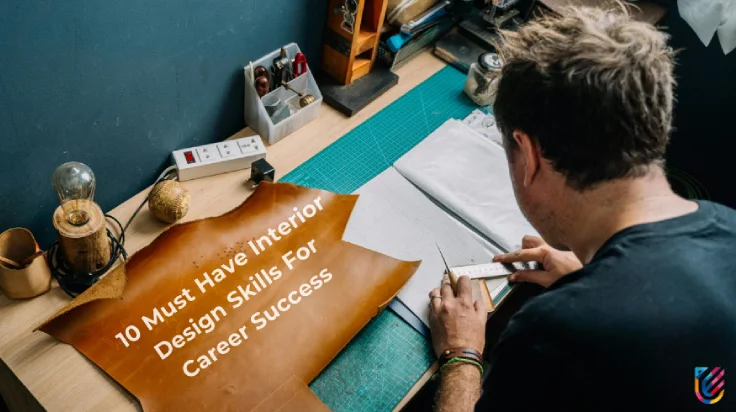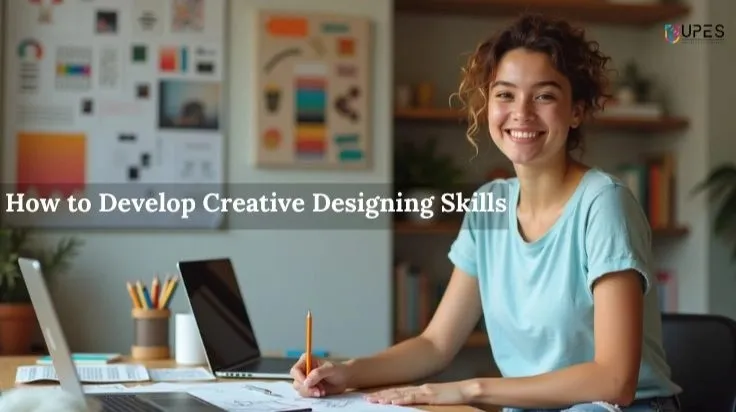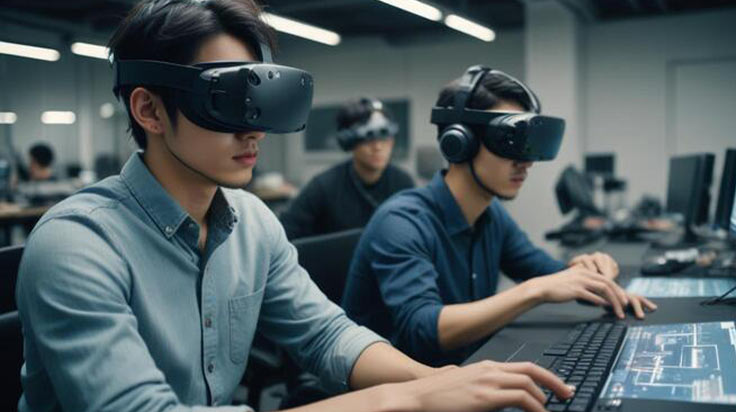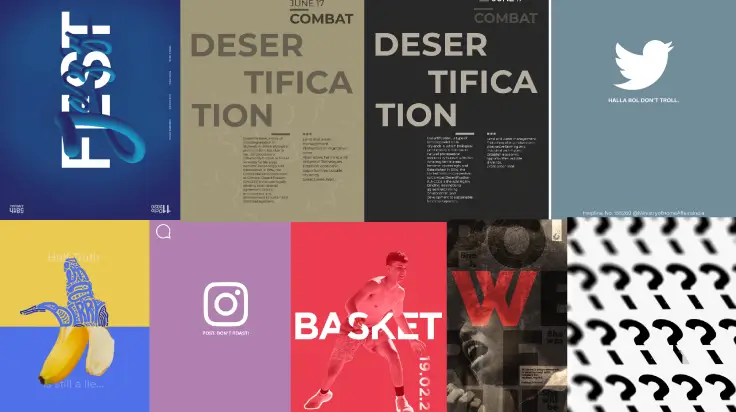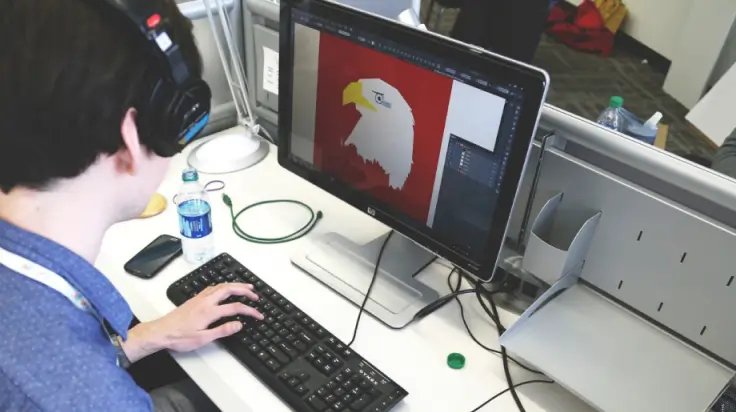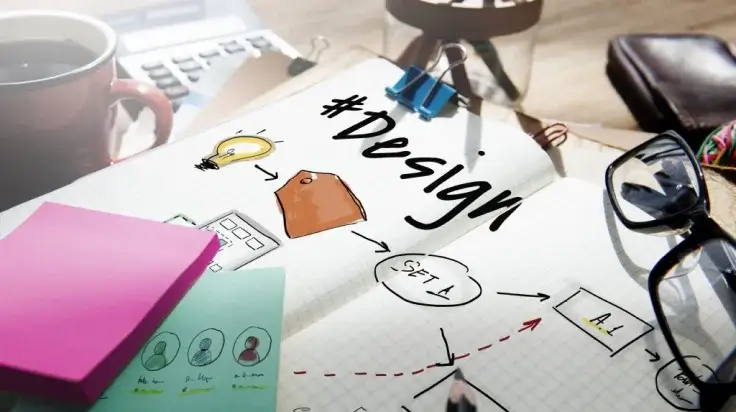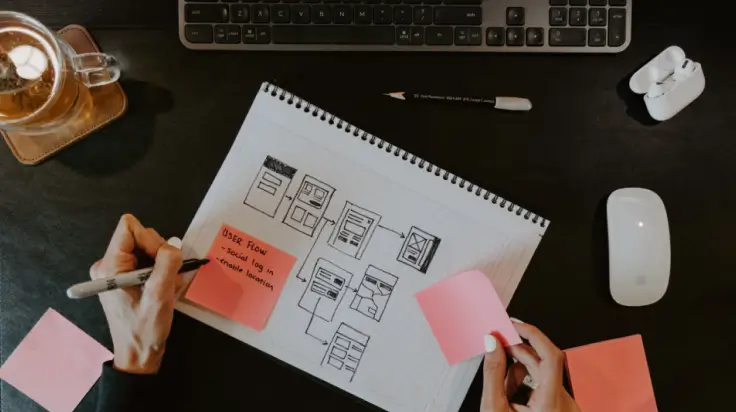Factors to Consider While Choosing a B.Des. Course
- UPES Editorial Team
- Published 08/07/2024
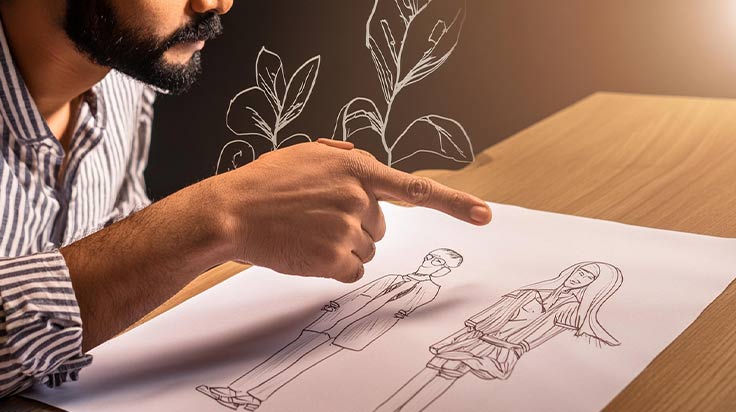
Are you passionate about design and considering a Bachelor of Design (B.Des.) degree? Choosing the right course can be overwhelming, but don't worry! We've got you covered with this comprehensive guide to help you make an informed decision. Whether you're a creative high school graduate or someone looking to switch careers, this post will walk you through the key factors to consider when selecting a B.Des. program.
What is a B.Des. Degree?
Before we dive into the factors, let's quickly understand what a B.Des. degree is all about. A Bachelor of Design is an undergraduate degree that focuses on various aspects of design, including:
- Animation and VFX
- Graphics & Communication Design
- User Experience and Interaction Design
- Product Design
- Mobility and Vehicle Design
- Interior and Retail Space Design
- Game Design
This versatile degree equips you with the skills and knowledge needed to thrive in the dynamic world of design.
Key Factors to Consider When Choosing a B.Des. Course
Specialization Options
One of the most crucial factors in selecting a B.Des. program is the specialization options available. Different institutions offer various focus areas within design. Here's a quick overview of popular specializations:
| Job Title | Average Annual Salary |
|---|---|
| Animation and VFX | 3D modeling, character animation, visual effects, storytelling, motion graphics |
| Graphics & Communication Design | Visual branding, typography, print design, digital media, advertising graphics |
| User Experience and Interaction Design | UI/UX design, wireframing, prototyping, user research, information architecture |
| Product Design | Industrial design, ergonomics, materials and manufacturing, CAD modeling, product development |
| Mobility and Vehicle Design | Automotive design, transportation systems, aerodynamics, sustainable mobility solutions |
| Interior and Retail Space Design | Spatial planning, lighting design, furniture design, retail experience, sustainable interiors |
| Game Design | Game mechanics, level design, character design, game engines, interactive storytelling |
These specializations offer a diverse range of options within the B.Des. program at UPES, catering to various interests and career paths in the design industry. Each specialization provides targeted skills and knowledge relevant to its specific design field, preparing students for specialized roles in their chosen area of expertise.
Curriculum and Course Structure
Examine the curriculum and course structure of potential B.Des. programs. Look for:
- A balance between theoretical knowledge and practical skills
- Opportunities for hands-on projects and portfolio development
- Integration of industry-relevant software and tools
- Flexibility to explore different design disciplines
A well-rounded curriculum will prepare you for the diverse challenges of the design industry.
Faculty Expertise and Industry Connections
The quality of education you receive largely depends on the faculty. Research the backgrounds of professors and instructors. Look for:
- Industry experience
- Academic qualifications
- Recognition in the design community
Additionally, consider the institution's connections with the design industry. Programs with strong industry ties often offer:
- Guest lectures by design professionals
- Internship opportunities
- Collaborations with design firms
- Networking events
These connections can be invaluable for your future career prospects.
Facilities and Resources
Design education requires access to specialized equipment and software. When evaluating B.Des. programs, inquire about:
- Design studios and workshops
- Computer labs with industry-standard software
- Prototyping facilities (3D printers, laser cutters, etc.)
- Libraries with extensive design resources
State-of-the-art facilities can enhance your learning experience and help you develop professional-level skills.
Internship and Placement Opportunities
Practical experience is crucial in the design field. Look for programs that offer:
- Mandatory internship components
- Industry partnerships for work placements
- Career guidance and placement assistance
These opportunities can give you a head start in your design career and help you build a professional network.
Alumni Success and Industry Reputation
Research the success stories of alumni from the B.Des. programs you're considering. Look for:
- Profiles of successful graduates
- Alumni working in reputable design firms
- Testimonials and reviews from past students
A program with a strong track record of producing successful designers is likely to provide quality education and industry recognition.
Accreditation and Reputation
Why It Matters
Accreditation ensures that the institution meets specific educational standards. A reputable institution often provides better educational resources, faculty, and networking opportunities.
What to Look For
Accreditation Bodies: Check if the institution is accredited by recognized bodies.
Rankings and Reviews: Research the institution's ranking and read reviews from current and former students.
Conclusion: Make an Informed Decision
Choosing the right B.Des. course is a significant decision that can shape your future in the design industry. By considering these factors, you'll be well-equipped to make an informed choice that aligns with your passions, goals, and career aspirations.
Remember, the best B.Des. program for you is one that not only provides quality education but also inspires your creativity and helps you grow as a designer.
Research B.Des. programs that interest you, speak to our representative for more information, and don't hesitate to connect with current students or alumni to get insider perspectives.
Apply online to take the first step towards a fulfilling career in design today!
UPES Editorial Team
Written by the UPES Editorial Team
UPES Admission Enquiry
Subscribe to UPES Blogs
Join our community for exclusive stories, insights, and updates
By clicking the "Subscribe" button, I agree and accept the privacy policy of UPES.









